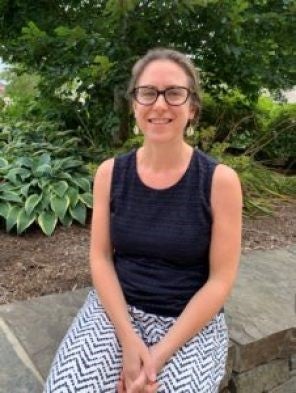By: Mariana Ferreira
Before interning at the Harvard Immigration and Refugee Clinic (HIRC) my understanding of social work was limited to the definitions I had picked up from psychology textbooks. I knew that social work entailed providing people with emotional support. Beyond that, I vaguely understood what kind of work ‘social services’ encompassed. In my mind, social work was like the icing on the cake: important, but not necessarily a defining feature of the dessert. That changed when I interpreted a client meeting together with HIRC’s social worker, Liala Buoniconti. I realized that social work is not the icing at all, but a much more critical ingredient in this metaphorical legal clinic cake.
I remember the meeting was particularly difficult because the legal team needed the client, Julia*, to recount deeply traumatic abuse she suffered in her past. It became clear that Julia was struggling to answer some questions posed by her legal team. This was, in part, because she did not understand their context and, in part, because the questions were about painful things that she wished never to remember. Liala drew on her social work expertise in the meeting to make Julia feel more comfortable answering questions and to make the legal team more comfortable asking them. When Julia did not understand a question, Liala’s culturally sensitive lens allowed her to rephrase questions in a way that was relevant to where and when Julia grew up. Liala also took the time to slow down the pace of the interview to acknowledge why it is so common to have trouble accessing memories when the subject is traumatic. Julia then appeared more at ease, knowing that difficulties with memory are not only typical for trauma survivors, but actually a coping mechanism that many use to deal with the associated emotions. Without Liala in the meeting, Julia would not have been able to share as much as she did about her story with us, and she might have run the risk of becoming re-traumatized.
When certain questions sent Julia into a painful memory, Liala noticed that Julia was dissociating. In an effort to help Julia regain a sense of control, Liala would employ sensory and breathing techniques to help ground Julia in the present. Grounding is a technique used in the social work field, aimed at trying to help someone focus on their present safety, rather than re-living the emotional intensity of their trauma. After the interview, Liala sat with Julia to provide critical emotional support, and to keep her in the present: safe and far away from the people and the place that brought her so much suffering. It was after this meeting that I began to understand how integral social workers are to HIRC’s mission. From addressing the mental health of attorneys, students, and clients to facilitating the logistics of legal objectives, social workers complete the HIRC team.
Together, the legal and social work teams strive to promote justice and better lives for immigrants. Liala shared the following quote with me from Judith Herman, a specialist in the psychiatry of trauma who wrote the groundbreaking work Trauma and Recovery, “Trauma robs the victim of a sense of power and control; the guiding principle of recovery is to restore power and control.” I believe this quote represents the goal of the social work program at HIRC. In addition to Liala, there is a team of social work interns who are completing their fieldwork at HIRC while pursuing their Masters of Social Work degrees. As attorneys work to build clients’ legal case, the social work team attends to their emotional and resource needs in order to facilitate their full participation in their own lives and in the legal process.
When working one-on-one with clients, social workers foster healing relationships that give clients someone to trust. Sometimes, social workers create this relationship by providing emotional support for those struggling with the toll of their immigration case. Other times, social workers connect people to community resources such as food banks or therapists. They also explain mail that people may not understand, find affordable furniture for their homes, accompany them on public transportation so they know how to reach our office, and help them with other everyday life tasks that many people may take for granted.
The social work team also teaches clinic attorneys and students how to be trauma-sensitive. Liala co-teaches the class Trauma, Refugees and Asylum Law, guest speaks at the clinic training and Immigration and Refugee Advocacy Seminar, and conducts trauma-sensitivity orientations for the Harvard Immigration Project. She provides advice to students and attorneys on dealing with cultural differences and with survivors of trauma.
I have learned a lot from Liala during my three months at HIRC. I have come to realize that she is one of the most essential members of the clinic. She creates a safe and supportive environment for everyone at HIRC, including clients, law students, and attorneys, to cope with the intense emotional experience of working on asylum cases. Without the social work team, HIRC could not accomplish all it does today for immigrants. The inclusion of the social work program embodies what the clinic is all about: serving the immigrant community in hopes of improving their lives and their access to justice.
*Julia’s name was changed to respect client confidentiality.
Filed in: Clinical Voices
Contact Office of Clinical and Pro Bono Programs
Website:
hls.harvard.edu/clinics
Email:
clinical@law.harvard.edu
